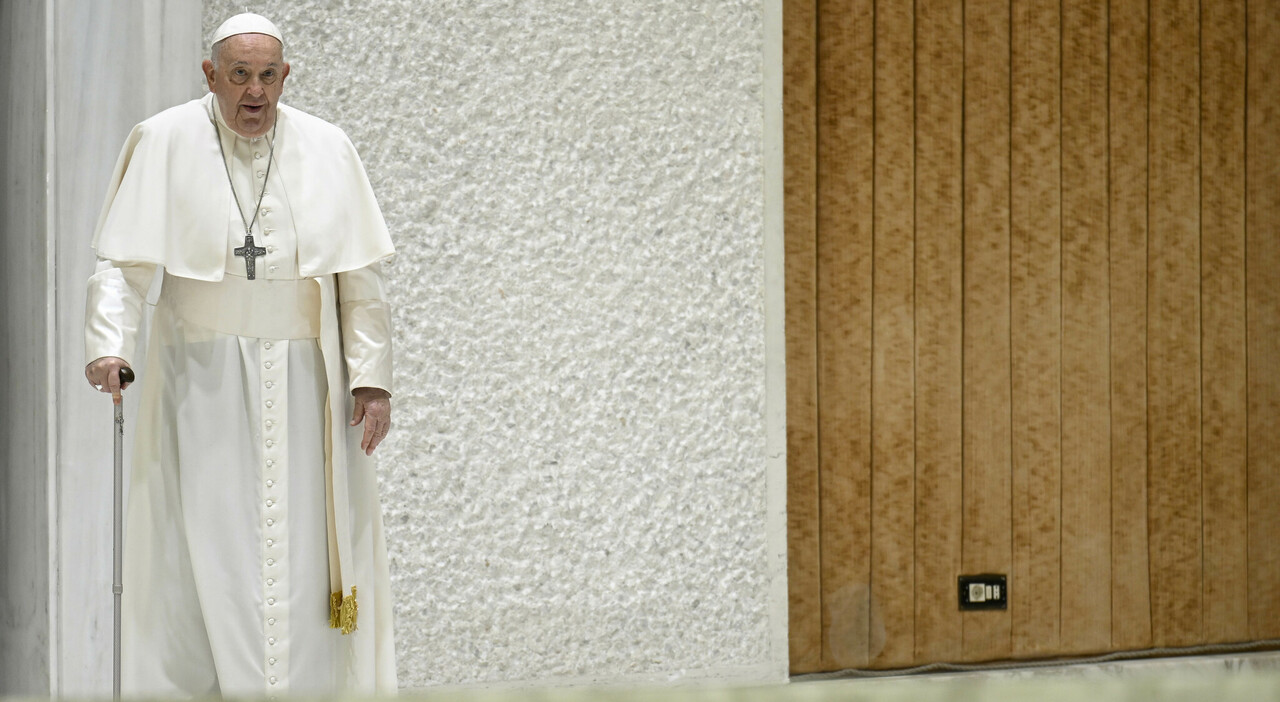Will Pope Francis reform the conclave? The voice of possible substantial changes to the rules for the election of the new Pope is becoming pressing again, but this time it is not advanced by conservative-oriented sites and blogs. In this case, the hypothesis is cherished by Alberigo's favorite student, Alberto Melloni, a historian of Christianity and author of numerous books on popes, who focuses mainly on the very significant risks that the electoral college runs in times of AI and algorithms as a basis for determining behaviors, given the growing attention of neo-imperialist powers to guide, manipulate, influence the Catholic Church of the future which, Melloni notes, "constitutes a natural antagonist and an objective obstacle" to the power designs of many sovereignties, in a geopolitics increasingly crossed by widespread conflicts and the rapid sunset of multilateralism.
CONCLAVE
"The Church of Rome represents a reality that is by its nature unarmed but global, with a grip that, although reduced by processes of secularization and not yet adapted to post-secular society, remains incomparable in quantitative and qualitative terms compared to other universes, such as the Sunni one, in which terrorist impulses have settled that require very long eradication times and theological elaborations of cohesion today still embryonic" Melloni notes in the Il Mulino magazine.
Pope Francis would like to reform the Conclave and have women vote, the indiscretion of a magazine creates turmoil in the Curia
RULES
Against the backdrop of the Pope's ongoing health problems, there is talk of a change in the conclave rules to avoid any kind of external influence or targeted campaign to denigrate. Today, in fact, it is possible to influence the election of one candidate or another with information operations based on news about the sexual abuse scandal. In this way, even excellent candidates could be sunk. According to the historian, precautions should therefore be taken to ensure the election of non-blackmailable cardinals. It's a pity that the current electoral system contained in the constitution Universi Dominici Gregis leads to coagulate majorities around the cardinal who emerges as the favorite in the first two rounds of voting. The papal elections of 2005 and 2013 are proof: they lasted barely a day and a half. Such a short time, however, with these basic risks, introduces a high margin of risk. Melloni therefore suggested modifying the electoral rules by always introducing a whole day of reflection and discussion among the candidates after the polls, in order to remove the pressure of the media from the conclave and "decompressing the media tendency to describe the conclave with the colors of an American primary, made of tricks, money and ideological constructs".
A woman Secretary of State of the Vatican? "It would be time". The cardinal and theologian Muller crumbles the taboos
"A dilation of the times, finally, would allow to break in two the acceptasne: when in fact one scrutiny ends in which a cardinal has exceeded two thirds of the votes, he is publicly asked if he accepts the election that took place canonically ("acceptasne electionem de te canonice factam in Summum Pontificem??", precisely) and then the name; in a slow conclave the elected could have a longer time, even a night, to decide and if ever consult. Furthermore, the person finally elected with a two-thirds majority should be given an entire day to reflect and deliberate in order to reach a well-considered decision on the opportunity to accept the elections" it reads.
Pope Francis repeats: "My assignment is for life. But I wrote a resignation letter like Pius XII did"
In recent months, news had come out that the Pope had put his hand to the constitution Universi Dominici Gregis to change the General Congregations, the meetings that precede the Conclave, and that could be conducted not with many interventions as has been done in the past, but with the style of small working groups, as happened in the last Synod, in order to contain the voices of dissent. Moreover, it was said that from the General Congregations the over-eighty cardinals would be excluded and other reference figures for the Church (for example famous nuns or lay people) would be introduced. The hypothesis, however, was denied by the highest Vatican jurist, Cardinal Ghirlanda who cut short saying he had never heard such a thing. Pope Francis, in turn, had denied the news about possible news coming. "The Pope is chosen by the bishops because he is bishop of a diocese, he is bishop of Rome" he explained in the book-interview with journalists Francesca Ambrogetti and Sergio Rubin: "The important thing therefore is that the electors are bishops, not cardinals. In fact, I could issue a decree that changes the requirements to enter the conclave and allows a bishop who is not a cardinal to participate. From the dogmatic point of view there would be no problems. But, clearly, if a woman cannot access the priesthood, less than less will she be able to access the episcopate".
The rules of the Conclave: how the new Pope is elected
This article is automatically translated
